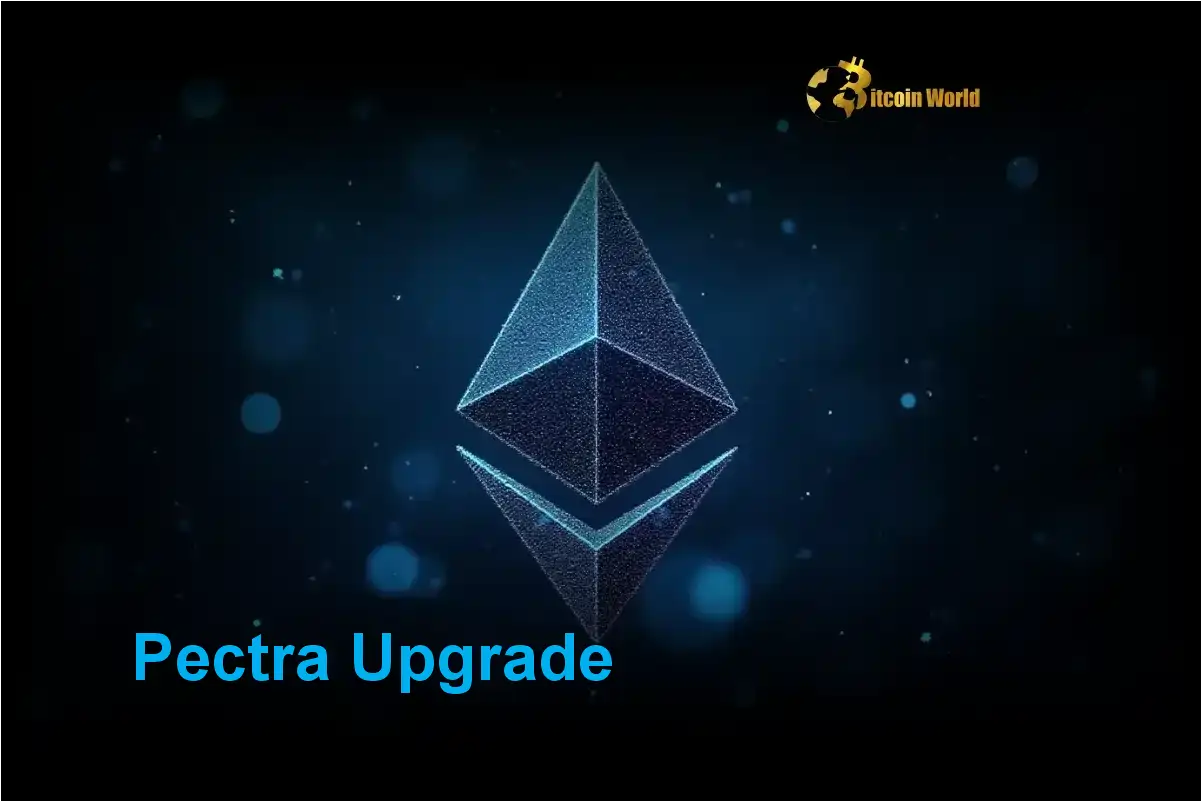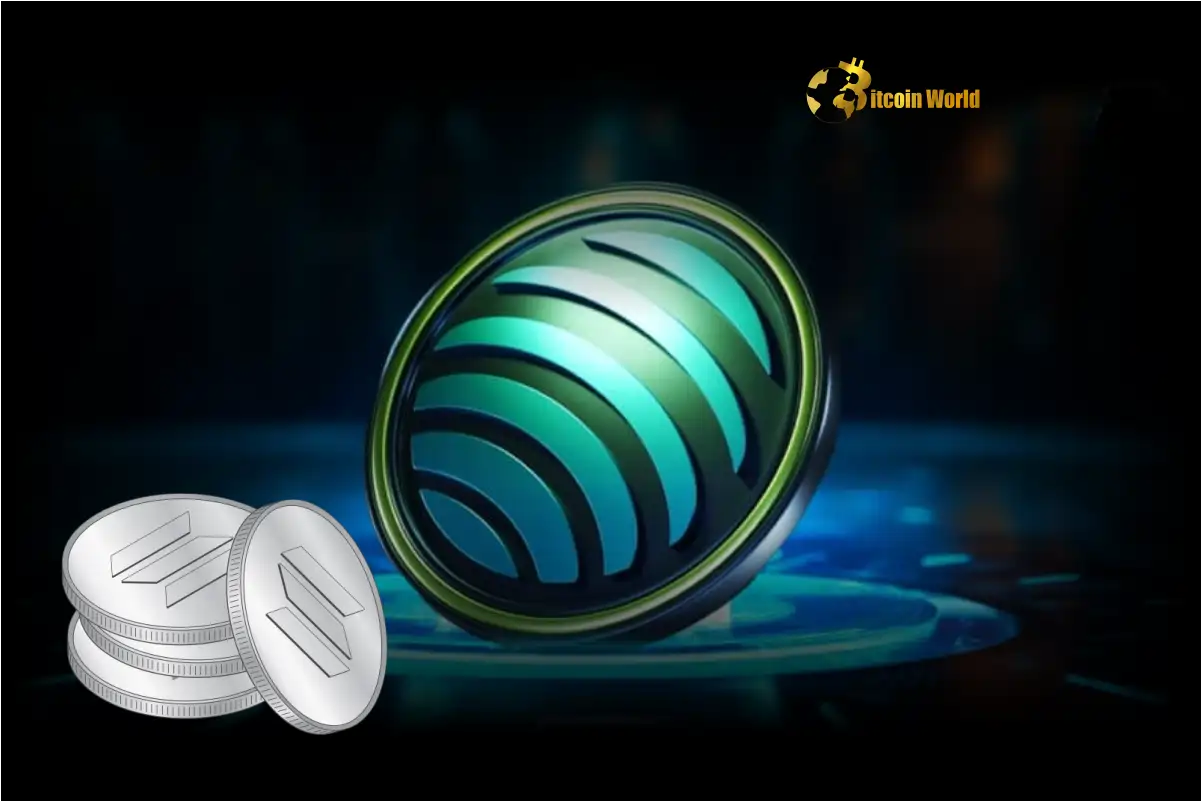In the fast-paced world of decentralized finance (DeFi), navigating the ocean of tokens can feel like traversing uncharted waters. How do you know which tokens are trustworthy and which might be… well, less so? If you’re a user of Solana-based decentralized exchanges (DEXs), especially Jupiter, you’re in for some fantastic news! Jupiter has just launched Jupiter Verify, a groundbreaking system designed to inject a hefty dose of crypto trust into the Solana ecosystem. Let’s dive into how this exciting development is set to change the game.
What is Jupiter Verify and Why Does Token Verification Matter?
Jupiter, a leading DEX on Solana, has officially announced the arrival of Jupiter Verify through their X account. This isn’t just another feature; it’s a comprehensive token verification system built to address a critical need in the DeFi space: user confidence. In essence, Jupiter Verify is all about making it easier for you to distinguish between credible Solana tokens and those that might raise a red flag.
But why is this so important? Think about it. The beauty of DeFi lies in its open and permissionless nature. Anyone can launch a token, which is incredible for innovation. However, this also opens the door to potential risks. Without proper vetting, users can fall prey to scams, rug pulls, or simply projects that lack legitimacy. This is where token verification steps in, acting as a beacon of safety and transparency.
Jupiter Verify aims to solve this problem head-on by providing clear signals about the credibility of tokens listed on their DEX. This isn’t about Jupiter becoming a gatekeeper, but rather about empowering users with the information they need to make informed decisions. It’s about fostering a safer and more reliable trading environment on Solana.
Decoding the Tiers: How Jupiter Verify Enhances DEX Security
Jupiter Verify isn’t a one-size-fits-all approach. It’s a tiered system, offering varying levels of assurance based on different verification methods. Let’s break down each tier to understand how they contribute to enhanced DEX security and user trust:
-
- Blue Chip Verification: The Gold Standard
Imagine the ‘blue checkmark’ of the crypto world, but with even more substance. Blue Chip verification is reserved for established and reputable projects on Solana. Think of tokens from well-known protocols, projects with significant community backing, and a proven track record. This tier signifies a high level of trust and is likely to include projects that have demonstrated longevity and reliability.
-
- Community Assisted Verification: Power to the People
This is where the community gets directly involved in shaping the verification landscape. Community Assisted verification leverages the collective wisdom of the Jupiter and Solana ecosystems. Through a transparent and collaborative process, community members can contribute to the evaluation of tokens, highlighting projects they believe are legitimate and valuable. This approach harnesses the power of decentralized vetting, making verification more robust and inclusive.
-
- Social ID Verification: Connecting Real Identities
In a space often characterized by pseudonymity, Social ID Verification introduces an element of real-world accountability. Projects undergoing this level of verification link their token to verified social media identities and potentially other forms of public identification. This doesn’t necessarily guarantee project success, but it adds a layer of transparency and reduces the anonymity that can sometimes shield malicious actors. It’s about building bridges between the on-chain world and real-world identities to enhance DEX security.
-
- C.A.T. Report (Cautionary Assessment & Transparency): Transparency First
The C.A.T. Report tier is all about transparency and providing users with crucial information, even if a token doesn’t fit neatly into the other verification categories. This report will likely highlight key risk factors, potential concerns, and important details about a token’s background and operations. It’s about equipping users with a ‘buyer beware’ approach, but with the necessary information to make informed decisions. Think of it as a detailed risk assessment, empowering users to navigate the token landscape with their eyes wide open.
Benefits of Jupiter Verify: A Win-Win for Solana?
The introduction of Jupiter Verify is poised to bring a wave of positive changes to the Solana ecosystem. Let’s explore some key benefits:
- Increased User Trust and Confidence: At its core, Jupiter Verify is about building trust. By providing clear verification tiers, users can more easily identify credible tokens, leading to increased confidence in the Solana DeFi space as a whole. This is crucial for attracting new users and fostering wider adoption.
- Reduced Risk of Scams and Rug Pulls: While no system is foolproof, Jupiter Verify significantly raises the bar for nefarious actors. The verification process makes it harder for scam tokens to gain traction and provides users with signals to avoid potentially risky projects. This contributes directly to improved DEX security.
- Support for Legitimate Projects: Jupiter Verify isn’t just about weeding out bad actors; it’s also about highlighting and supporting legitimate projects. Verification badges can serve as a mark of quality, attracting more users and investors to projects that have undergone scrutiny and met certain standards.
- Enhanced Transparency and Accountability: The system promotes transparency through its tiered approach and the inclusion of community and social ID verification. The C.A.T. Report further emphasizes transparency by providing detailed information about tokens, empowering users with knowledge.
- Community Empowerment: The Community Assisted Verification tier directly involves the community in the verification process. This decentralized approach leverages the collective intelligence of the Solana ecosystem, making the verification process more robust and aligned with community values.
Navigating the Challenges: Is Token Verification a Silver Bullet?
While Jupiter Verify is a significant step forward, it’s important to acknowledge that no system is without its challenges. Token verification is not a silver bullet that will eliminate all risks in DeFi. Here are some potential challenges to consider:
- The Evolving Nature of Scams: Scammers are constantly adapting their tactics. Verification systems need to be dynamic and continuously evolve to stay ahead of sophisticated scams and rug pull attempts.
- Subjectivity in Community Verification: While community involvement is a strength, it can also introduce subjectivity. Ensuring fairness, preventing manipulation, and establishing clear guidelines for community-based verification will be crucial.
- Resource Intensity of Verification: Implementing and maintaining a comprehensive verification system requires resources. Jupiter will need to dedicate ongoing effort to ensure the system remains effective and up-to-date.
- False Sense of Security: It’s crucial to avoid creating a false sense of security. Verification is a valuable tool, but users must still conduct their own due diligence and understand the risks involved in DeFi. Jupiter Verify should be seen as an aid to informed decision-making, not a guarantee of safety.
Jupiter Verify in Action: Real-World Examples (Hypothetical)
Let’s imagine how Jupiter Verify might play out in practice:
| Scenario | Jupiter Verify Tier | User Action |
|---|---|---|
| Trading a well-established Solana token like $SOL or $RAY. | Blue Chip Verification | Trade with high confidence, knowing the project is well-vetted. |
| Exploring a promising new community token with active social channels. | Community Assisted Verification | Review community feedback and DYOR (Do Your Own Research) while considering the positive community signals. |
| Considering a token from a project with publicly known developers. | Social ID Verification | Evaluate the developers’ reputation and project details alongside the added transparency of social ID. |
| Encountering a newer, less-known token with a C.A.T. Report. | C.A.T. Report | Carefully review the C.A.T. Report, understand the highlighted risks, and proceed with caution if interested. |
These are just hypothetical examples, but they illustrate how Jupiter Verify can provide users with a framework for assessing token credibility and making more informed trading decisions on the Solana DEX.
Actionable Insights: How to Leverage Jupiter Verify
So, how can you, as a Solana user, make the most of Jupiter Verify?
- Familiarize Yourself with the Tiers: Understand what each verification tier signifies and what level of assurance it provides.
- Look for Verification Badges: When browsing tokens on Jupiter, pay attention to the verification badges associated with each token.
- Utilize Community Resources: Engage with the Jupiter and Solana communities to gather insights on Community Assisted Verified tokens.
- Review C.A.T. Reports: If a token has a C.A.T. Report, take the time to read it carefully and understand the potential risks.
- Combine Verification with Your Own Research: Jupiter Verify is a valuable tool, but it shouldn’t replace your own due diligence. Always conduct thorough research before investing in any cryptocurrency.
Conclusion: A Giant Leap for Crypto Trust on Solana
Jupiter’s launch of Jupiter Verify marks a significant step forward in enhancing crypto trust and DEX security within the Solana ecosystem. By introducing a tiered verification system, Jupiter is empowering users with the tools and information they need to navigate the token landscape with greater confidence. While challenges remain, the potential benefits of Jupiter Verify – increased user trust, reduced risk, and support for legitimate projects – are undeniable. This initiative not only benefits Jupiter users but also contributes to the overall maturation and credibility of the Solana DeFi space. It’s a positive development that signals a growing commitment to user safety and transparency in the ever-evolving world of decentralized finance. Trust is paramount in crypto, and Jupiter Verify is a powerful tool in building and reinforcing that trust.
To learn more about the latest crypto market trends, explore our article on key developments shaping Ethereum institutional adoption.
News – BitcoinWorld – Read More









